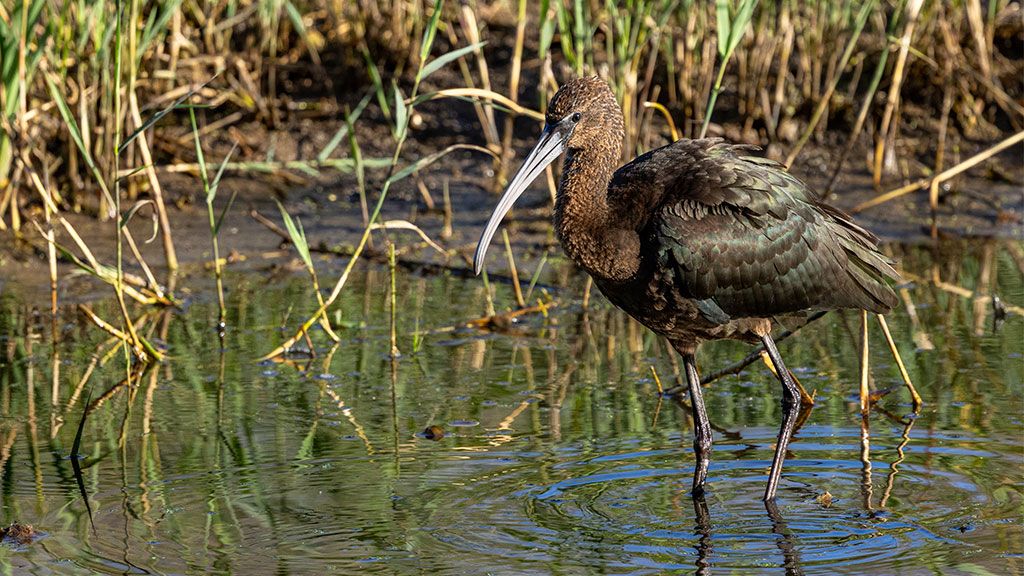An NFM update in the Thames River Catchment
One year into the Thames Catchment Natural Flood Management Advice project and there have already been a number of successes and lessons learnt.
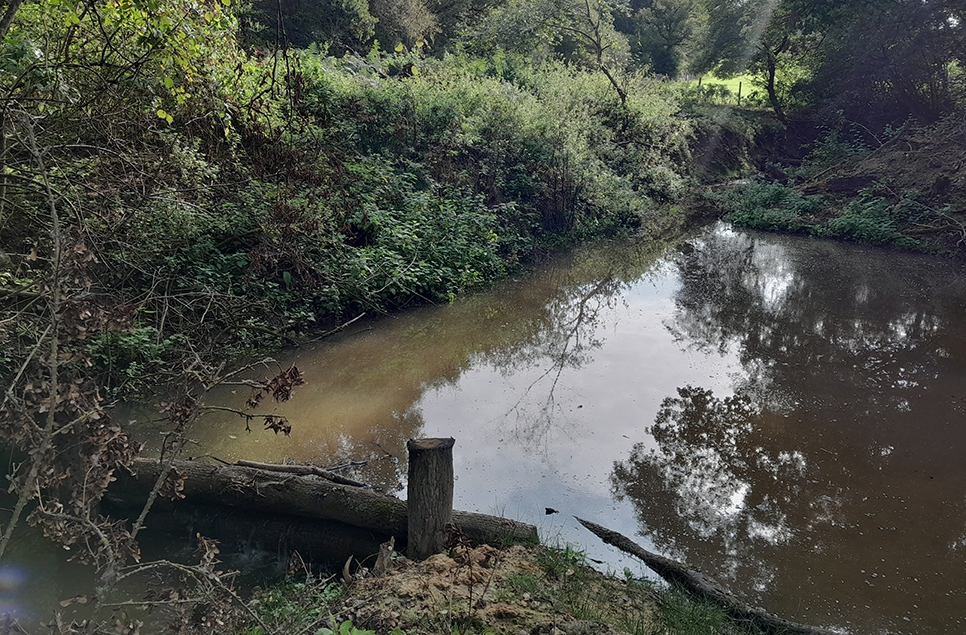
Funded by the Thames Regional Flood and Coastal Committee (RFCC), WWT are providing expert advice to encourage the uptake of Natural Flood Management (NFM) in the Thames Catchment so that it becomes a mainstream flood risk mitigation strategy. With support from the RFCC and the Thames Flood Advisors, this collaborative project has been working to engage and upskill key stakeholders, fund the delivery of NFM projects and increase the evidence base for the benefits coming from NFM.
Over the past year, as part of Phase 2 of the Thames RFCC’s NFM programme, a number of projects in the Thames have been granted levy funding to deliver interventions to tackle flooding issues and enhance biodiversity where possible. Of the 13 applications received in the first round of funding, Pang Valley Flood Forum’s project is the first to be delivered and is already storing water upstream of Pangbourne and other local villages in high flow events. This scheme includes a number of leaky dams and a retention pond to help slow the flow of water and is a collaboration between the flood group, West Berkshire Council and the Bucklebury Estate.
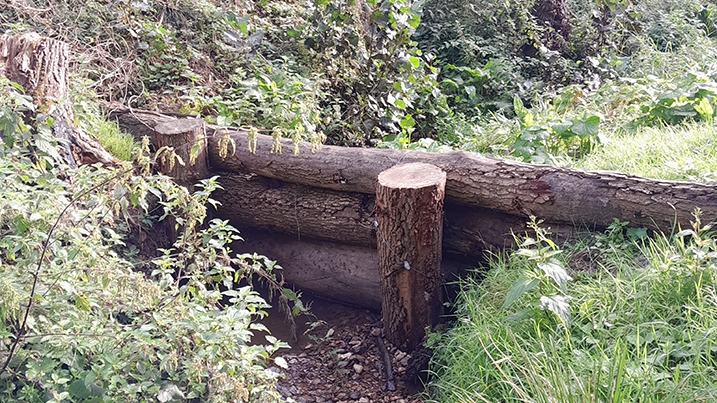
In addition to funding being allocated to suitable projects, a number of learning events have been run as part of the advisory project which aim to engage and upskill relevant stakeholders in the catchment. A number of webinars have been delivered which have given insight into how to make the most of the Thames RFCC’s NFM priority and opportunity map, how to develop NFM projects and the multiple benefits NFM projects can achieve. The recordings of these can be found on the project page and are available for users to watch back to aid future project development.
To further the knowledge of stakeholders and provide networking opportunities, a one day NFM conference - “The future of NFM in the Thames Catchment” - was held on 11 September at Reading University. The day included a number of talks covering perspectives on research, delivery and funding opportunities with the audience including local authorities, NFM researchers & practitioners, landowners and community representatives. Over 80 people attended and positive feedback from the event included both the content covered and the opportunity the event gave for experts and interested parties to be in a room together.
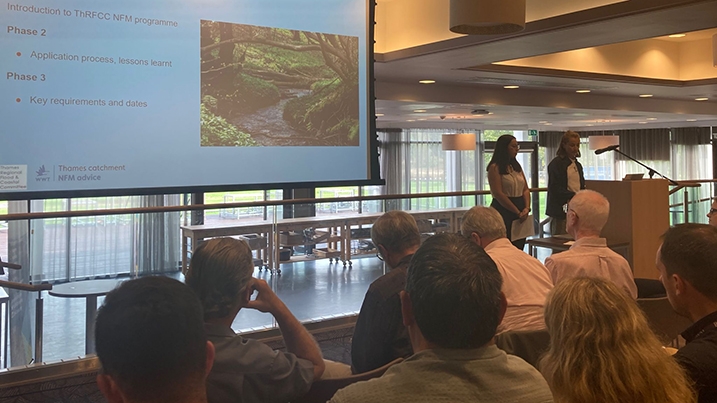
As part of upskilling and engaging stakeholders, site visits are being completed to give an opportunity to view interventions on the ground. In May, a number of stakeholders visited the Dorking NFM scheme in Surrey to learn more about the thorough monitoring being completed at this site to better understand the impact of leaky dams on hydrology. In October, a visit to the Evenlode allowed participants to learn about a large-scale successful scheme which was selected as a winner of the Flood and Coast Excellence awards in 2021.
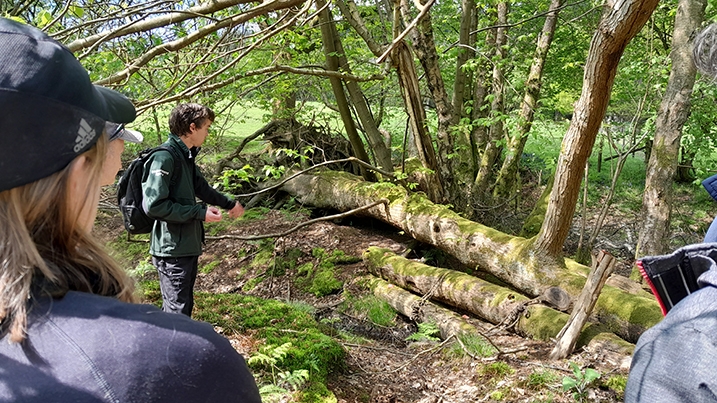
The successful first year of this project has largely been due to the effective collaboration between WWT, the Thames RFCC and the wider partnership who have been working together to increase the number and scale of NFM features in the catchment. By drawing on WWT’s research department and UK Programmes team we have been able to provide an external independent perspective on NFM delivery and facilitate a variety of opportunities for stakeholders.
The next year of the project will look to increase the number of small scale NFM schemes in the Thames Catchment and will shift focus towards the delivery of catchment-scale schemes as well as increasing understanding on current barriers to NFM uptake.
If you have any questions or enquiries about this project please contact the Thames Catchment NFM Advisor, Oli Etherington or visit the Thames Catchment NFM Advice project page.
Follow the project's LinkedIn page for updates, information and learning opportunities in support of NFM in the Thames catchment.


